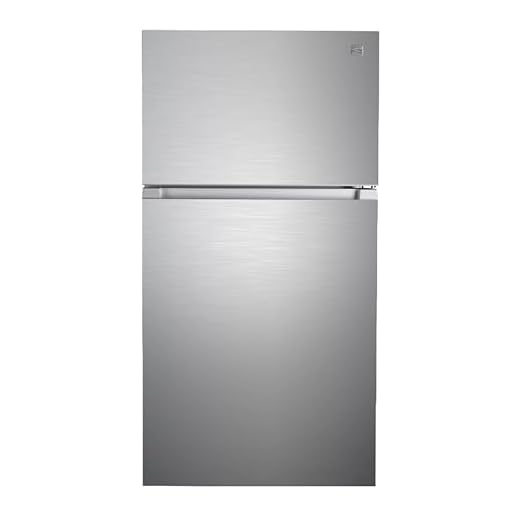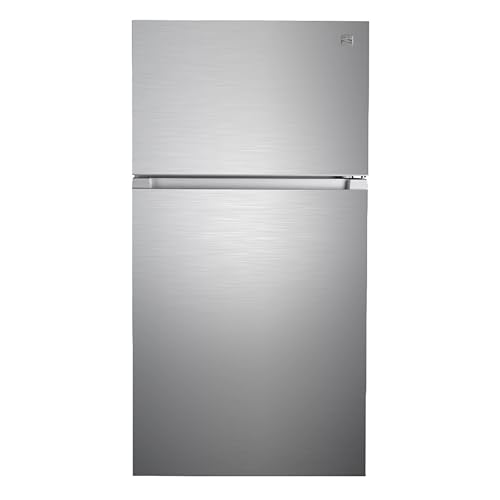



When it comes to refrigeration, many homeowners wonder whether it is possible to use a commercial refrigerator instead of a standard residential one. Commercial refrigerators are commonly used in restaurants, cafes, and other food service establishments, and they are known for their durability and large storage capacity.
While it may seem tempting to bring the benefits of a commercial refrigerator into your home, there are several factors to consider before making the decision. First and foremost, commercial refrigerators are designed for heavy-duty use and are typically larger and more powerful than residential models. This means they consume more energy, which can result in higher utility bills for homeowners.
Another important point to consider is the size and layout of your kitchen. Commercial refrigerators are significantly larger than residential ones and may not fit well in a standard-sized kitchen. They also require proper ventilation and clearance around the unit to ensure optimal performance and prevent overheating.
Moreover, commercial refrigerators often lack the same convenience features found in residential models, such as ice makers, water dispensers, and temperature-controlled storage compartments. These features are often important to homeowners, especially those with families or specific dietary needs.
In conclusion, while using a commercial refrigerator at home is technically possible, it is not always the most practical or cost-effective solution. The higher energy consumption, size limitations, and lack of convenience features make residential refrigerators a better choice for most homeowners. However, if you have a large family or frequently entertain guests and require extra storage space, it may be worth considering a commercial refrigerator for your home.
Benefits of Using a Commercial Refrigerator at Home
Using a commercial refrigerator in a home setting can come with several benefits. While commercial refrigerators are primarily designed for use in a commercial setting such as restaurants, catering businesses, or grocery stores, they can still be a valuable addition to a home kitchen. Here are some of the key benefits of using a commercial refrigerator at home:
1. Ample Storage Space
One of the main advantages of using a commercial refrigerator at home is the abundance of storage space it offers. Unlike regular household refrigerators, which usually have limited storage capacity, commercial refrigerators are larger and can accommodate a significant amount of food and beverages. This makes them ideal for large families, those who entertain frequently, or those who like to stock up on groceries.
2. Improved Performance and Temperature Control
Commercial refrigerators are designed to handle heavy usage and maintain consistent cooling temperatures, which can help preserve food for longer periods. They feature powerful compressors and fans that ensure rapid and precise temperature control. This can be especially beneficial for storing perishable items and maintaining the freshness of fruits, vegetables, meats, and dairy products.
Additionally, commercial refrigerators often come with advanced features such as adjustable shelving, larger crisper drawers, and temperature monitoring systems. These features allow for better organization and easier access to stored items, making meal preparation and planning more convenient.
It is important to note that commercial refrigerators may consume more energy than standard household models due to their larger size and enhanced performance features. This should be considered before making a purchase.
3. Durability and Longevity
Commercial refrigerators are built to withstand the demands of a commercial environment, which often involves constant opening and closing, higher temperatures, and heavier loads. As a result, they are typically constructed with higher quality materials and have a longer lifespan compared to regular household refrigerators. Investing in a commercial refrigerator for home use can save money in the long run, as they generally require fewer repairs or replacements.
Conclusion
While commercial refrigerators may not be a practical choice for every home, they can offer several benefits for those who require additional storage space, improved performance, and durability. Consider the specific needs of your household, the available space, and the potential energy usage before deciding whether a commercial refrigerator is the right option for your home.
Considerations Before Using a Commercial Refrigerator at Home
Using a commercial refrigerator in your home may seem like a convenient and practical solution for storing large amounts of food or beverages. However, there are several important considerations to take into account before making this decision.
1. Size and Space
Commercial refrigerators are much larger and heavier than standard residential refrigerators. Before purchasing one, you need to ensure that you have enough space in your home to accommodate it. Measure the available area and check the dimensions of the refrigerator to guarantee a proper fit.
2. Energy Consumption
Commercial refrigerators are designed to operate in commercial settings where energy usage is not a primary concern. As a result, these units tend to consume more energy than residential refrigerators. Before using a commercial refrigerator at home, consider the potential impact on your energy bills and whether your home’s electrical system can handle the increased load.
It is also worth noting that some commercial refrigerators may not be Energy Star certified, which means they are less energy-efficient compared to their residential counterparts.
3. Noise Level
Commercial refrigerators are often louder than residential models due to their powerful compressors and fans. This noise can be disruptive in a home environment, especially if the refrigerator is located near living spaces or bedrooms. Consider the noise level and whether it is something you can tolerate on a daily basis.
4. Functionality and Features
Commercial refrigerators are designed with different functionalities and features compared to residential models. They are typically optimized for storing large quantities of food or beverages for extended periods, making them ideal for businesses such as restaurants or grocery stores.
Consider whether the features of a commercial refrigerator, such as adjustable shelves, temperature control options, or specialized storage compartments, are necessary for your home use. In some cases, these features may be excessive or unnecessary, leading to additional costs without providing significant benefits.
Conclusion: While using a commercial refrigerator at home can provide extra storage space and convenience, it is essential to carefully consider the size, energy consumption, noise level, and functionality before making a decision. Understanding these considerations will help you make an informed choice that suits your needs and ensures optimal performance in your home environment.
Alternative Options for Home Refrigeration
If you are considering using a commercial refrigerator at home, you may want to explore alternative options that are more suitable for residential use. While commercial refrigerators are designed for heavy-duty use in professional settings, they may not be the most practical choice for a home kitchen. Here are a few alternative options to consider:
1. Standard Residential Refrigerator: A standard residential refrigerator is designed to meet the needs of a typical home kitchen. It is compact, energy efficient, and provides adequate storage space for everyday food items. While it may not have the same storage capacity as a commercial refrigerator, it is more than sufficient for most households.
2. Compact Refrigerator: If you have limited space in your kitchen or need an additional refrigerator for a specific purpose, a compact refrigerator can be a great alternative. These smaller units are perfect for storing beverages, snacks, or other items that need to be kept cool but don’t require a full-size refrigerator.
3. Freezerless Refrigerator: If you have a separate freezer or don’t need the freezer space in your refrigerator, a freezerless refrigerator is an option to consider. These refrigerators provide ample storage for fresh food items and eliminate the need for defrosting or managing freezer space.
4. Wine Cooler: If you are a wine enthusiast and want a dedicated space to store your collection, a wine cooler can be a great addition to your home. These specialized refrigerators provide optimal temperature and humidity control to keep your wines in perfect condition.
5. Drawer Refrigerator: For those who prefer a sleek and modern look, a drawer refrigerator offers a unique and stylish option. These refrigerators are designed to fit seamlessly into kitchen cabinetry and provide convenient access to stored items.
Ultimately, the choice of home refrigeration depends on your specific needs and preferences. Consider factors such as available space, storage requirements, and budget when selecting the best option for your home.
FAQ
Can I use a commercial refrigerator in my home kitchen?
Yes, you can use a commercial refrigerator in your home kitchen. However, it is important to consider the size and power requirements of the commercial refrigerator to ensure it fits and functions properly in your space.
What are the benefits of using a commercial refrigerator at home?
Using a commercial refrigerator at home offers several benefits. These refrigerators are typically larger and have more storage capacity compared to regular home refrigerators, allowing you to store more food and beverages. Additionally, commercial refrigerators are designed to maintain cooler temperatures more consistently, which can help preserve the freshness and quality of your perishable items for a longer period.
Are there any downsides to using a commercial refrigerator at home?
While there are benefits to using a commercial refrigerator at home, there are also some potential downsides to consider. Commercial refrigerators tend to be larger and take up more space in your kitchen. They can also be more expensive to purchase and operate compared to regular home refrigerators. Additionally, the noise level of a commercial refrigerator may be louder than what you are used to with a regular home refrigerator.
Can a commercial refrigerator be used in a residential setting without any modifications?
A commercial refrigerator can be used in a residential setting without any modifications, but it is important to ensure that the electrical wiring and power supply in your home can accommodate the specific power requirements of the commercial refrigerator. It may be necessary to hire a professional electrician to make any necessary adjustments or upgrades to your electrical system.







